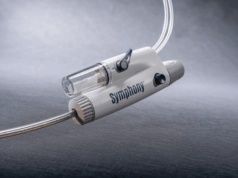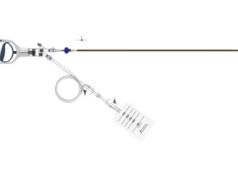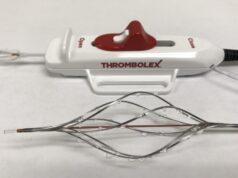RapidAI announced today that it has received US Food and Drug Administration (FDA) 510(k) clearance for its Rapid PE Triage & Notification product for fast identification and communication of suspected central pulmonary embolism (PE).
According to a company press release, new research shows that death rates for PE have been on the rise over the last decade, with the biggest increase among people under 65. For those who experience and survive a PE incident, the company notes, one-third will have a recurrence within 10 years. “Increasing access to clinically validated technology will be key to helping hospitals more efficiently coordinate care, make accurate diagnoses in a timely manner, and get PE patients to treatment faster, leading to better outcomes,” the release continues.
“Building on our expertise in stroke, we are confident this technology will help modernise PE care and meaningfully improve patient outcomes,” said Karim Karti, CEO of RapidAI. “Our goal is to build solutions that address the specific challenges associated with treating various conditions, as well as the communication and workflow issues faced by hospitals globally. From stroke to aneurysm to PE, we are proud of how much RapidAI has grown and are excited to continue to redefine the patient care journey.”
The company claims that Rapid PE Triage & Notification, in conjunction with Rapid Workflow for PE, will enable care teams to more easily manage the entire patient care journey, from the moment a suspected PE patient is identified to diagnosis and through treatment. By automatically identifying a suspected PE and delivering real-time notifications to physicians, RapidAI details, patients can be triaged faster and care teams aligned more quickly, reducing overall time to treatment.
“I am excited to see first-hand how artificial intelligence will transform the way we triage and manage PE, a historically complicated process involving a diverse care team,” said Jimmy Kerrigan, an interventional cardiologist at Ascension St Thomas Heart (Nashville, USA). “After seeing what RapidAI technology has done for stroke, I am optimistic about its potential to optimise our care for patients and to hopefully improve patient outcomes.”









